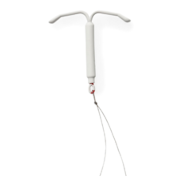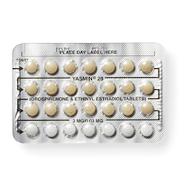What you should know about sex in the water
Is everything better down where it’s wetter? Let us lay it out for you before you get wet and wild.
.jpg)
Adapted from a post by Danielle DeSilvis, originally published on SexReally.com on April 11, 2011.
When you think of water, you may well think of fun and wet. Pair that up with sex (also, hopefully, fun and wet) and you have a winning combination, right? Not necessarily. If you’re thinking about getting wet and wild in the water, there are a few things to consider first.
Be Sexy and Safe
No matter where you’re doing it, if you are having sex you should always protect yourself against STIs and unplanned pregnancy. One problem here is that condoms and water don’t always mix. There is a chance that the condom can slip off, and when you combine chemicals and hot water it can affect the durability of the condom. So what’s a couple to do?
It’s a good idea to double up with a condom and an effective form of contraception to prevent pregnancy. If you’re using a reliable contraceptive method and want to forgo the condom, here are a few things to think about first.
Water can wash away natural lubrication, so consider using a silicone-based, water-resistant lubricant (check out Ride Silicone, for example) to keep everything slipping and sliding—in a good way.
If you’re using a condom, then definitely use a silicone-based, water-resistant lubricant—it’s more comfortable and will make it more likely that your condom stays intact.
Location, Location, Location…
When getting it on in the water, it’s best to stay close to home. Public pools and hot tubs contain more chlorine and chemicals that a private pool or hot tub would. The last thing you want is highly chlorinated water rushing in and out of the vagina—hello irritation! If you really want to get intimate in a public setting, oral sex is a better option. You can still use a condom or dental dam if somebody’s out of the water, so it can be fun and safer.
Thinking of a lake or an ocean? Salt water and sand aren’t a vagina’s best friend. No matter how careful you think you’re being, oceans and lakes are filled with organisms, dirt, and sand that can get pushed into a vagina—hello infection! When it comes to sex on the beach, personally I’d stick with the cocktail. (If you’re 21 or over, of course.) If you insist, make sure you’re on a thick blanket.
The tub or shower can be fun and should present far less exposure to chlorine or organisms. The only thing to keep in mind is that tubs and showers are slippery and sometimes tiny spaces—I would recommend some anti-slip treads in the shower and maybe some light stretching beforehand.
Different locations might call for different positions, too, so you may want to check out this handy list of suggested “Water Sex Positions” courtesy of Cosmopolitan.
4 myths about sex in the water, busted
Last but not least, here are a few common myths about getting busy in water that must be busted immediately if not sooner.
Myth #1: You can’t get pregnant if you have sex in the water.
False. Once sperm are in the vagina, they’re on a mission to find an egg and fertilize. No amount of water is going to abort their mission.
Myth #2: Hot tubs and Jacuzzis are hot, so they prevent pregnancy.
False. Some people think that the high temperature in the hot tub will kill sperm. Truth is that even though consistent exposure over time of the testes to hot temperatures can decrease a man’s sperm count, he is still ejaculating several million of those little guys. It only takes one to fertilize an egg.
Myth #3: You can get pregnant if a man ejaculates into a pool.
False. If a man ejaculates into a pool, it is extremely unlikely to cause a pregnancy. Pools and Jacuzzis have chlorine and other chemicals, so sperm don’t stand a chance for more than a couple of seconds.
Myth #4: You can’t get an STI in the water.
False. If you are having sex without a condom, you are at risk for STIs regardless of the setting. On the other hand, risk of STIs comes from direct skin-to-skin contact, so if there’s no unprotected sexual act of any kind going on, no need to worry about the water itself.
Got all that? Keep it in mind, go forth, and enjoy the new season!
—
Danielle DeSilvis is a blogger and sex-positive activist. She holds a Masters in Sexual Health Education and a Masters in Science. At the time when she wrote this article, Danielle was teaching at the university level and pursuing her nursing degree specializing in women’s health.
How do you feel about this article?

Heat up your weekends with our best sex tips and so much more.


